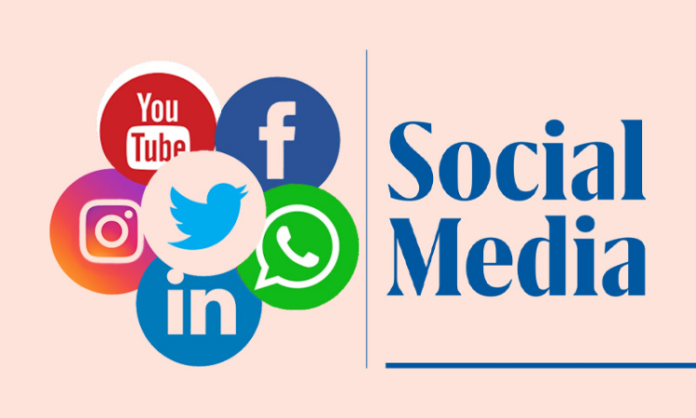Introduction
In today’s digital age, social media has become an integral part of our lives. It has revolutionized the way we communicate, share information, and connect with others. With billions of users worldwide, social media platforms have become powerful tools for businesses, influencers, and individuals to establish their online presence, engage with their audience, and build communities. In this article, we will delve into the world of social media, exploring its impact, benefits, challenges, and future trends.
Social Media: A Global Phenomenon
Social media platforms, such as Facebook, Instagram, Twitter, and LinkedIn, have transformed the way people interact and engage with content. These platforms enable individuals and businesses to share text, photos, videos, and other multimedia content with their networks. The power of social media lies in its ability to connect people from different corners of the globe, fostering relationships and facilitating the exchange of ideas.
The Benefits of Social Media
1. Enhanced Communication and Connectivity
Social media platforms have made communication faster and more convenient. Whether it’s connecting with friends and family, reaching out to new contacts, or engaging with like-minded individuals, social media provides a virtual space where people can interact, share experiences, and stay connected.
2. Networking and Collaboration Opportunities
For professionals and businesses, social media offers invaluable networking opportunities. Platforms like LinkedIn enable individuals to showcase their skills, connect with industry peers, and explore career opportunities. Businesses can use social media to collaborate with influencers, partner with other brands, and expand their reach to new markets.
3. Brand Building and Online Presence
Social media has become an essential tool for brand building and establishing an online presence. By creating engaging content, interacting with followers, and leveraging targeted advertising, businesses can raise awareness, attract customers, and foster brand loyalty. A strong social media presence allows brands to humanize their image and build relationships with their audience.
4. Information Sharing and Awareness
Social media acts as a powerful platform for sharing information and raising awareness about important causes. From news updates to educational content, social media enables individuals and organizations to disseminate information quickly and effectively, reaching a wide audience. Social media campaigns have played a significant role in promoting social, environmental, and political change.
The Challenges of Social Media
While social media offers numerous benefits, it also presents challenges and risks that users and businesses must navigate. It’s important to be aware of these challenges to make the most of social media platforms while minimizing potential drawbacks.
1. Information Overload and Disinformation
The vast amount of information available on social media can be overwhelming, leading to information overload. Additionally, the spread of disinformation and fake news has become a significant concern. Users must be critical consumers of information, fact-checking before sharing content and relying on reputable sources.
2. Privacy and Security Concerns
Social media platforms store vast amounts of personal data, raising concerns about privacy and security. Users must take precautions to protect their personal information and be mindful of the data they share online. It’s essential to review privacy settings, use strong passwords, and be cautious of suspicious links or requests.
3. Online Bullying and Trolling
The anonymity provided by social media can lead to an increase in cyberbullying and trolling. It’s crucial to foster a safe and respectful online environment by reporting and blocking abusive users. Social media platforms have implemented measures to combat bullying, but users must also take responsibility for their own behavior and interactions.
4. Mental Health Impacts
Excessive use of social media can have negative impacts on mental health. The constant exposure to curated, idealized versions of other people’s lives can lead to feelings of inadequacy and low self-esteem. It’s important to find a balance between offline and online activities, prioritizing real-world connections and self-care.
The Future of Social Media
As technology continues to advance, the landscape of social media is constantly evolving. Here are some emerging trends and predictions for the future of social media:
1. Video Dominance
Video content is increasingly popular on social media and is expected to dominate in the coming years. Platforms like TikTok and Instagram Reels have popularized short-form videos, while live streaming has gained traction. The future of social media will likely see further advancements in video capabilities, including augmented reality and virtual reality experiences.
2. Influencer Marketing Evolution
Influencer marketing has become a prominent strategy for brands to reach their target audience. However, as the market becomes saturated, influencers will need to differentiate themselves and focus on building genuine connections with their followers. Micro-influencers and nano-influencers may gain more prominence, as brands seek more authentic and niche audiences.
3. Social Commerce
Social media platforms are increasingly integrating e-commerce functionalities, allowing users to discover and purchase products without leaving the app. This trend is expected to continue, with more seamless and personalized shopping experiences directly within social media platforms.
4. Privacy and User Control
As privacy concerns grow, social media platforms will likely face increased pressure to prioritize user privacy and data protection. This may result in stricter privacy regulations, enhanced user control over data sharing, and more transparent policies.
Frequently Asked Questions
FAQ 1: How can I use social media to grow my business?
Social media can be a powerful tool for business growth. Start by defining your target audience and choosing the right platforms to reach them. Create a content strategy that aligns with your brand values and engages your audience. Consistently post high-quality content, interact with your followers, and leverage targeted advertising to expand your reach.
FAQ 2: Is it necessary to be on all social media platforms?
It’s not necessary to be on all social media platforms. Instead, focus on the platforms where your target audience is most active. Research your audience demographics and preferences to identify the platforms that align with your business goals and resources.
FAQ 3: How can I ensure my social media accounts are secure?
To ensure the security of your social media accounts, use strong and unique passwords. Enable two-factor authentication for an extra layer of security. Regularly review and update your privacy settings, and be cautious of suspicious messages or requests. Educate your team about best practices and potential security risks.
FAQ 4: What are the best practices for managing a social media presence?
Some best practices for managing a social media presence include:
- Consistency: Regularly post content to maintain an active presence.
- Engagement: Interact with your audience by responding to comments and messages.
- Analytics: Track your social media performance using analytics tools to identify trends and optimize your strategy.
- Collaboration: Collaborate with influencers or complementary brands to expand your reach.
- Experimentation: Try different content formats and strategies to keep your audience engaged.
FAQ 5: How can I balance my personal and professional presence on social media?
To balance your personal and professional presence on social media, consider creating separate accounts or using privacy settings to control what content is visible to different audiences. Be mindful of the content you share publicly and how it aligns with your personal and professional brand.
FAQ 6: What should I do if I encounter online bullying or harassment?
If you encounter online bullying or harassment, it’s important to take action. Block and report the individuals involved, and save evidence of the incidents. Reach out to the platform’s support or safety team for further assistance. Don’t engage in arguments or respond to the harassers, as this may escalate the situation.
Conclusion
Social media has transformed the way we connect, communicate, and build relationships. It offers numerous benefits, from enhanced connectivity to brand building and information sharing. However, it also presents challenges that users and businesses must navigate to ensure a positive online experience. By staying informed, practicing digital hygiene, and leveraging best practices, we can harness the power of social media for personal and professional growth.
============================================


